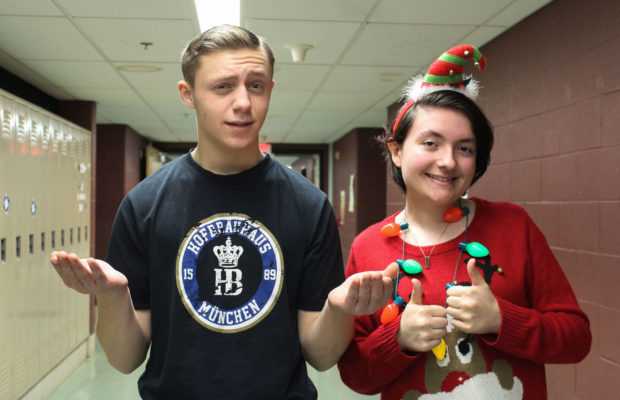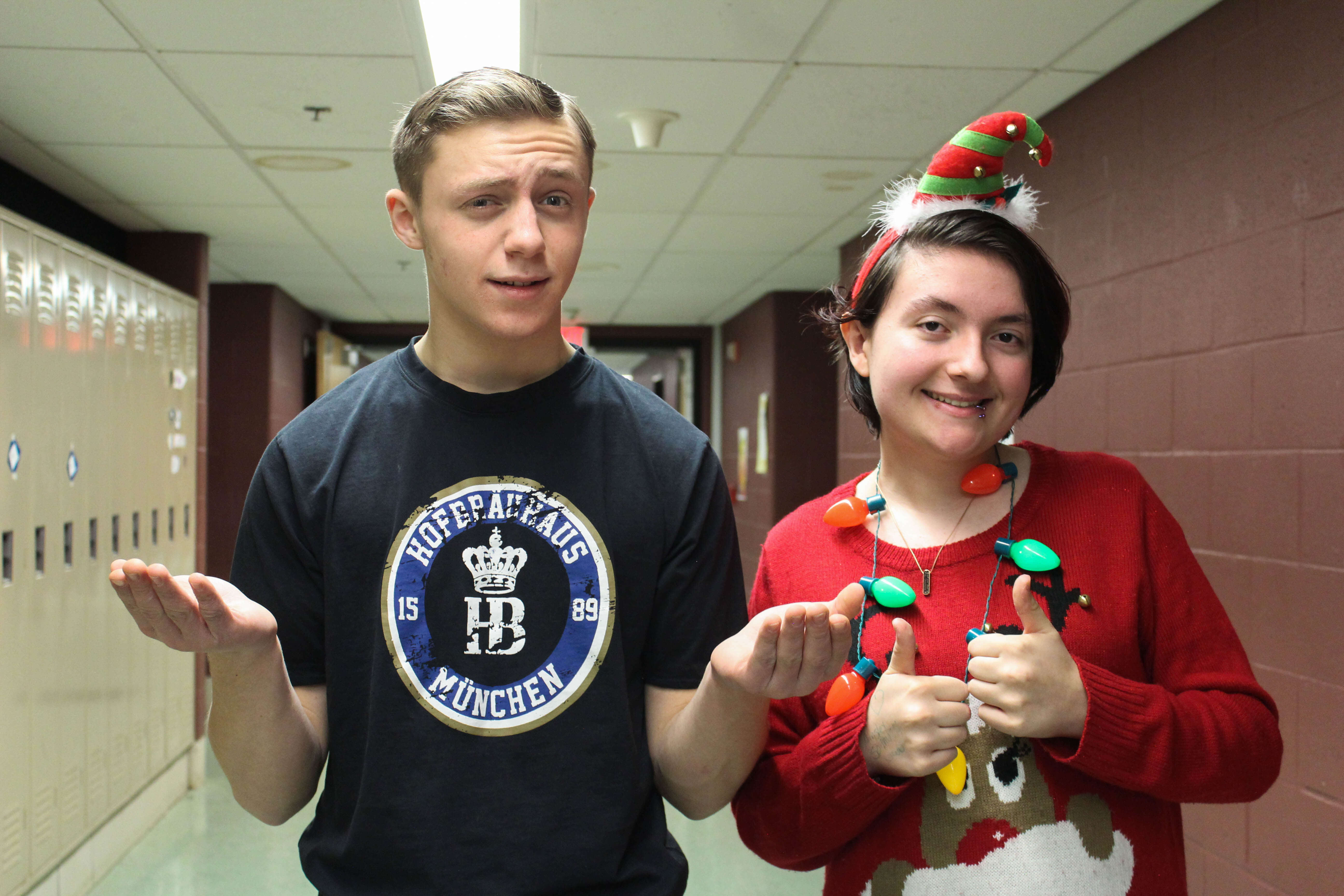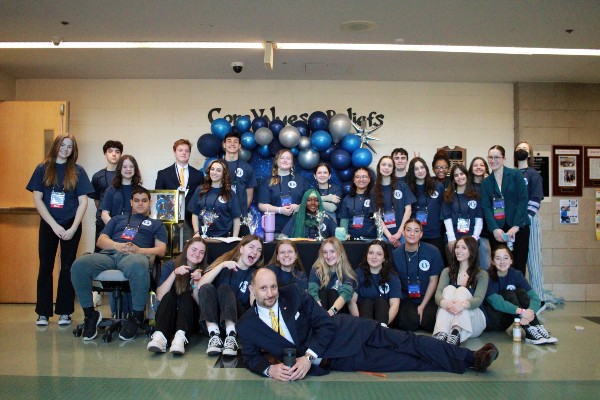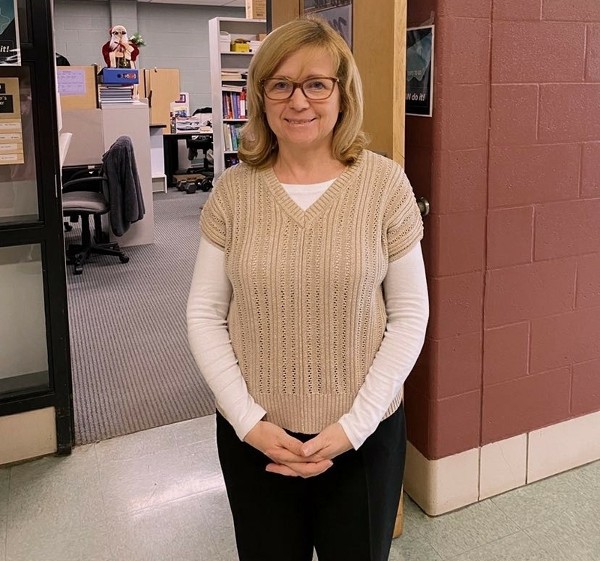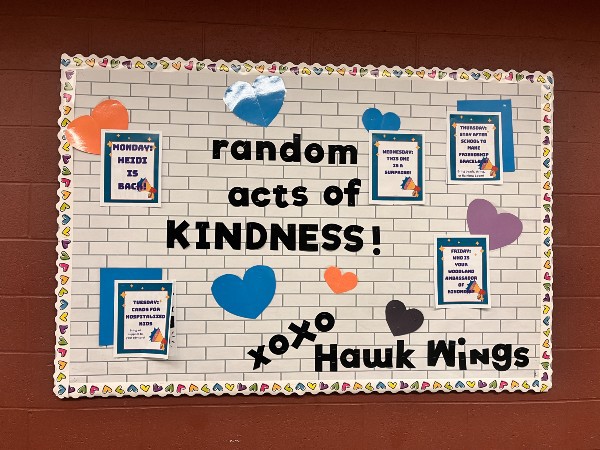 December seems to be notorious for it’s Christmas music, Christmas cookies, Christmas movies, Christmas sweaters, basically anything and everything Christmas. But how much of Woodland actually celebrates Christmas? Though Christmas seems to be a mainstream holiday that the majority of the country celebrates, it is not the only holiday celebrated in December.
December seems to be notorious for it’s Christmas music, Christmas cookies, Christmas movies, Christmas sweaters, basically anything and everything Christmas. But how much of Woodland actually celebrates Christmas? Though Christmas seems to be a mainstream holiday that the majority of the country celebrates, it is not the only holiday celebrated in December.
Woodland teacher, Jess Block, is just one of the faculty members who enjoy celebrating Christmas and Hanukkah.
“I think the [Hanukkah] tradition, for me, is using this little prayer book my grandparents got me when I was a child, and lighting the Israeli menorah I received at a Bat Mitzvah gift when I turned thirteen.”
She describes her earliest memory of being Jewish as lighting the menorah with her parents at the age of four, and wearing the yarmulke her father had worn when he was younger. A yarmulke is a hat without brims that covers the top of the head. Traditionally, it is worn by boys, but by the time Block was growing up, the yarmulke was more common for young girls to wear during prayer, too.
From yarmulkes to food, another tradition Block celebrates with her family during Hanukkah is gathering with family and making latkes, or potato pancakes. The general tradition is that Jewish people are to eat things that are fried in oil, because the story of Hanukkah says that there was not enough oil to keep the lamp lit in the temple when the Jewish people were under attack, but that amount of oil is said to have lasted for 8 days, allowing them to survive. Some members of Block’s family may eat donuts or other fried foods, and latkes are popular a tradition. For toppings, different sauces are used, such as applesauce or sour cream.
“I side with my uncle and certain cousins, and prefer them crispy,” said Block. “A lot of my family likes them to be a little softer, but I think that just makes for a soggy latke. Who wants a soggy latke? Plenty of people, apparently.”
Block’s Christmas traditions and memories also involve her family. Her mother made ornaments and stockings, which she enjoys seeing yearly. Her grandmother hosts a large meal and gift exchange with family, listens to old records of Christmas carols, and spends time with her family. For Block, she would receive smaller gifts for Hanukkah, and receive larger gifts on Christmas.
This straying away from classic holiday culture doesn’t only apply to the faculty; Woodland junior, Alec Dergachev, celebrates both Hanukkah and Russian New Years. Dergachev celebrates Hanukkah, though he does not receive gifts during it. Dergachev instead receives his gifts during Russian New Year. Like Christmas, his family says “Happy New Years!”, then go to sleep, wake up six hours later, go to the tree, and open gifts. They have a decorated New Year’s tree, much like a Christmas tree.
On another hand, students such as Ryan Zhu celebrate Chinese New Year. Chinese New Year is celebrated in February, and its traditions differ for all celebrating. Zhu spends his winter breaks by reuniting with family, possibly even having a family party, and relaxing, which for some, is an ideal type of break. One tradition Zhu takes part in with his family is eating from a “hot pot”. A hot pot is a bowl of simmering water over a stove at the center of a table that raw vegetables and shrimp are put into to make a type of soup, and it is cooked at the table. He also partakes in exchanging of red envelopes. Zhu explains this as when traditionally adults give the younger family members a specific amount of money in a red envelope, and sometimes these envelopes are even traded between individuals.
“This is like a yearly allowance,” said Zhu. “Though it is much more formal.”
No matter what you celebrate, the winter season is traditionally a time of giving, family, and closeness. Those of Jewish faith, Christian faith, Muslim faith, and any other religion can agree that as the temperatures drop, people grow closer. The holiday season is known as the “most wonderful time of the year” for a reason, and even in an age where it seems as if no one can get along, people of all faiths, or none at all, can agree that the later months have the potential to be a beautiful time of love and closeness.
















